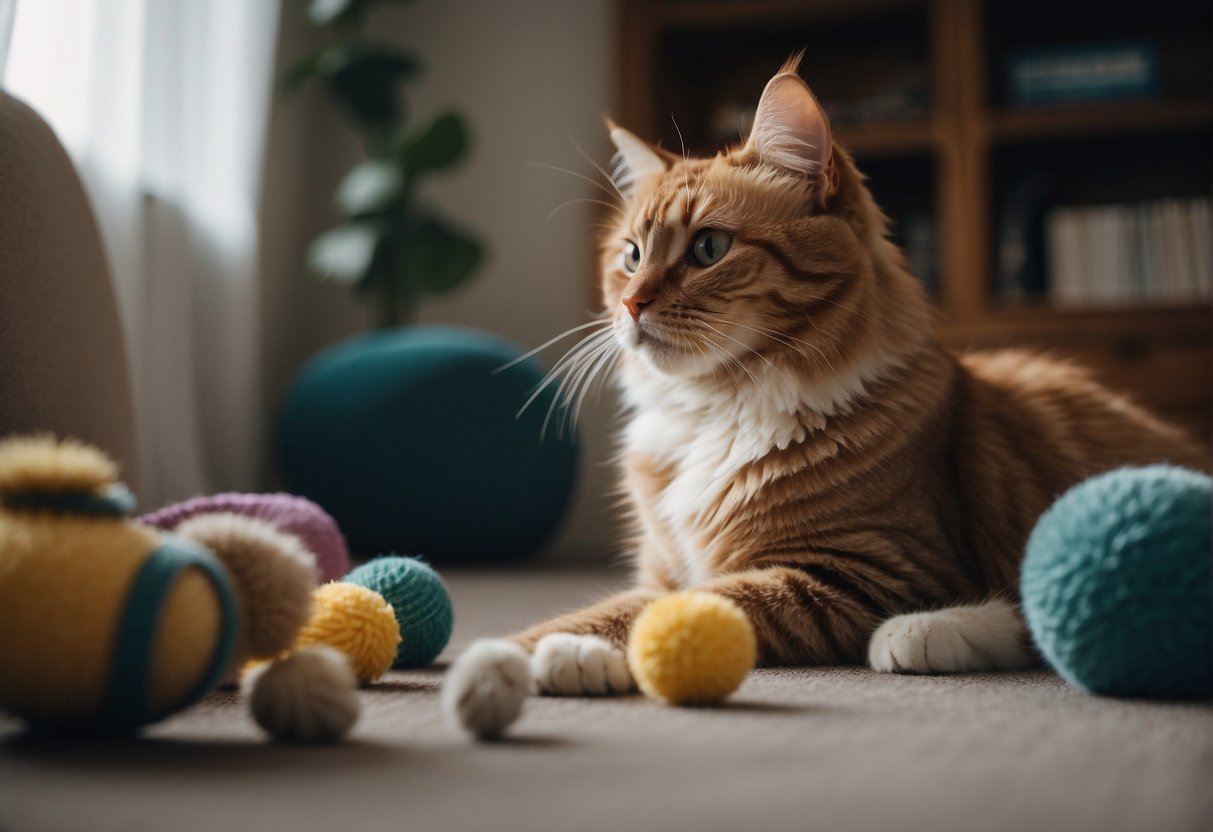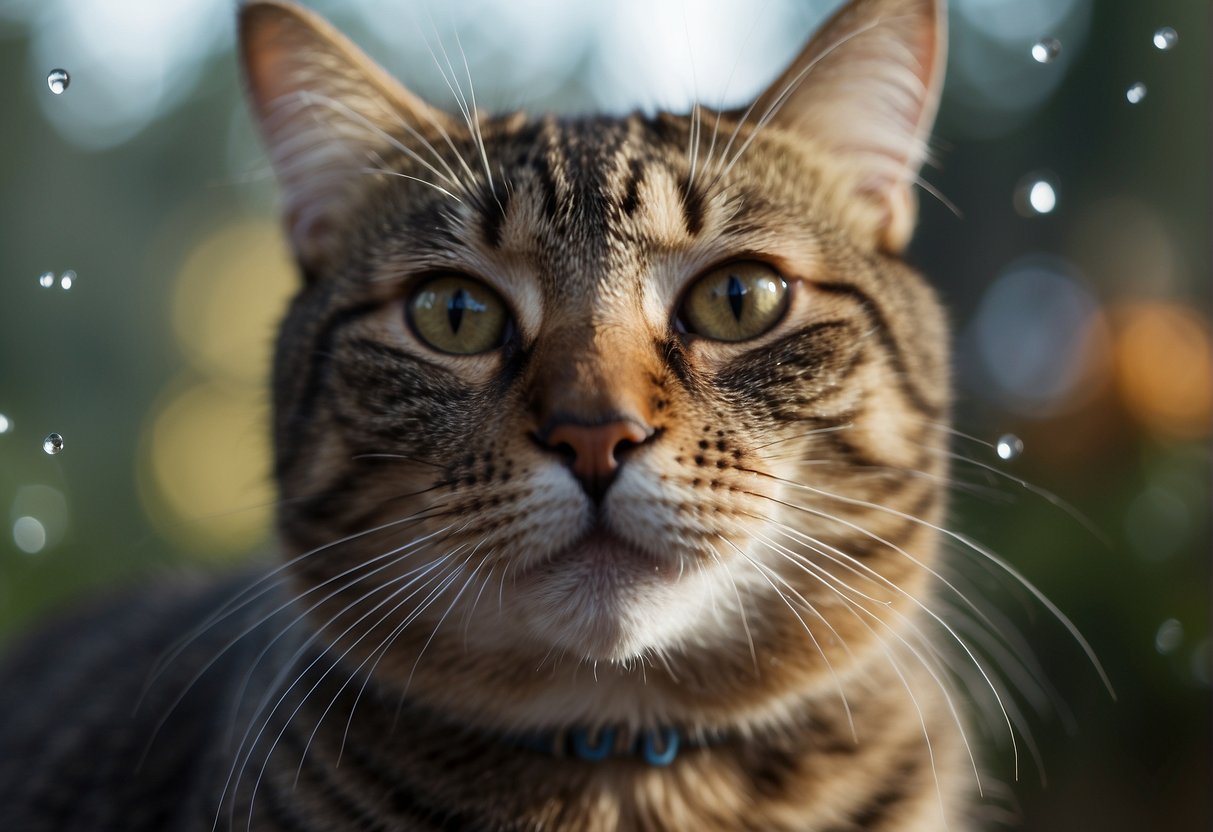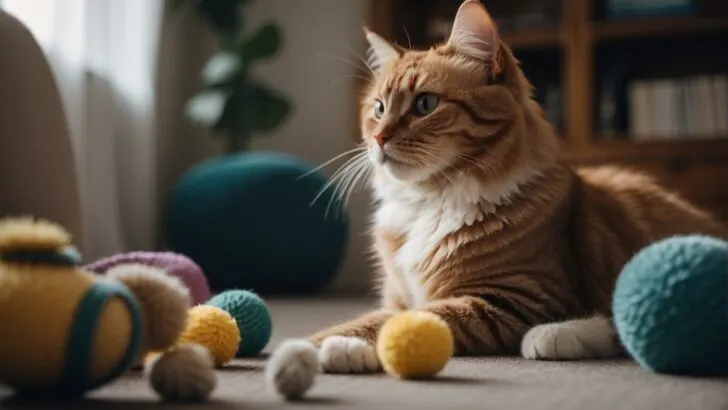Cats sneeze for various reasons, ranging from reactions to dust or irritants to more concerning issues like respiratory infections. It’s not unlike when you sneeze because of a little dust; sometimes, my cat does the same after a spirited dust bunny chase under the couch.
However, if your cat is sneezing frequently, it could be a sign of a viral infection similar to our common colds or, in some cases, an allergy.

Inhaled irritants such as strong smells, perfumes, cleaning agents, or even pollen can trigger sneezing in cats just as they might for you when you’re spritzing your favorite fragrance or tidying up your home. If your furry friend is an enthusiast in exploring every nook and cranny, it might just be that they’ve inhaled something that’s tickling their nose.
Observing your cat’s sneezing patterns can be quite telling. For instance, if the sneezing is accompanied by a runny nose or eyes, a lack of energy, or a change in appetite, it might indicate something more significant like an infection or allergies.
Common Causes of Sneezing in Cats

Sneezing in cats can be a sign of various health concerns, ranging from minor allergies to more serious infections.
Infections
Viral Infections: Cats are commonly affected by upper respiratory infections such as feline herpesvirus and calicivirus. Symptoms can include sneezing, nasal discharge, and in more severe cases, pneumonia.
- Feline Herpesvirus: Similar to the common cold in humans, this virus often leads to recurrent symptoms.
- Calicivirus: This infection can result in mouth ulcers and respiratory issues.
Bacterial Infections: While less common, bacterial infections can also cause sneezing in conjunction with symptoms like fever or lethargy. These might require antibiotics for treatment.
Allergies
Allergies in cats can manifest with sneezing as a key symptom, caused by:
- Pollen: Seasonal allergies could be the culprit during high pollen times.
- Dust and Mold: Airborne irritants found in many homes can trigger your cat’s allergies.
If you notice your cat sneezing more during certain times of the year or in different areas of your home, consider allergens as a potential cause.
Environmental Irritants
Cats can be sensitive to a range of environmental factors, which might be causing the sneezing:
- Perfume and Cigarette Smoke: Strong scents and smoke can be irritating to a cat’s respiratory system.
- Cleaning Products: Chemicals found in some household cleaners may provoke sneezing.
- Cat Litter Dust: Dust from cat litter, especially if it’s not a dust-free variety, can lead to sneezing.
Regularly cleaning your home and maintaining a dust-free environment can help reduce your cat’s exposure to environmental irritants.
Diagnosis and Veterinary Care
When your cat starts sneezing frequently, it’s natural to be concerned about their health. A visit to the veterinarian is key, as they have a variety of methods to diagnose the cause of the sneezing, from a clinical examination to laboratory tests and imaging techniques.
Clinical Examination
Upon visiting the vet, a thorough physical examination is the first step. The vet will carefully inspect your cat’s nose, throat, and mouth and check for signs of dental diseases, which can sometimes trigger sneezing. Listening to the lungs and looking for nasal discharge can also help indicate if respiratory infections or irritants are to blame.
Laboratory Tests
The vet may suggest referring some samples to the lab for further analysis. This could entail:
- Swab tests: To check for diseases like feline herpesvirus, feline calicivirus, chlamydia, or mycoplasma.
- Blood tests: To get a general idea of your cat’s health and to rule out other possible conditions.
- Bordetella tests: If Bordetella bacteria are a suspected cause, your cat will be tested for this specific pathogen.
All these tests are aimed at identifying viral respiratory infections or any other underlying issues that might be causing your cat to sneeze.
Imaging Techniques
In some cases, the answer isn’t found through observation or lab work, and that’s where imaging techniques come in handy:
- Rhinoscopy: This procedure allows the veterinarian to look directly inside the nasal passages.
- X-rays: Your vet may use these to check for any abnormalities in your cat’s nasal cavity or lungs that might be causing the sneezing.
These advanced imaging methods provide a clear picture of your cat’s nasal and sinus area, revealing problems that aren’t visible to the naked eye.
Treatment and Management
When it comes to treating and managing your cat’s sneezing, understanding the cause is crucial. After consulting a veterinarian, a personalized treatment plan, which may include medication or lifestyle changes, will be developed to address the underlying issue.
Medical Treatments
For bacterial upper respiratory infections, antibiotics are often prescribed to help clear the infection. In cases of chronic infections, like feline herpesvirus, antiviral medications may be recommended. If your cat has a condition causing inflammation, such as allergies or asthma, your vet might prescribe steroids to reduce swelling.
Surgery might be necessary for more severe conditions such as nasal polyps or neoplasia (cancer). Fungal infectionsmay require both medical and surgical treatment depending on the severity.
Vaccinations play a preventative role for some respiratory issues. For instance, the intranasal vaccine can help protect against certain viral infections that cause sneezing.
Home Care
At home, you can do several things to help manage your cat’s sneezing:
- Humidifier: Increasing humidity may help relieve nasal congestion, especially if your cat is dealing with an upper respiratory infection.
- Remove Inhalants: Avoid using scented products like candles, certain household cleaners, and cigarettes, which may irritate your cat’s respiratory system.
- Antihistamines: With veterinary guidance, antihistamines might be beneficial for treating allergies.

My name is James, and welcome to FAQCats!
Along with our team of cat owners, expert pet enthusiasts, and pet professionals, we aim to write engaging helpful, engaging content about cats. At FAQCats we strive to provide content that’s accurate and fun to read. Our team writes about everything related to cats; even the most complex of topics. Through extensive research and caring for our own fur-pals, we’re able to provide something cat owners worldwide will love. Have a look around, and leave us feedback anytime!

